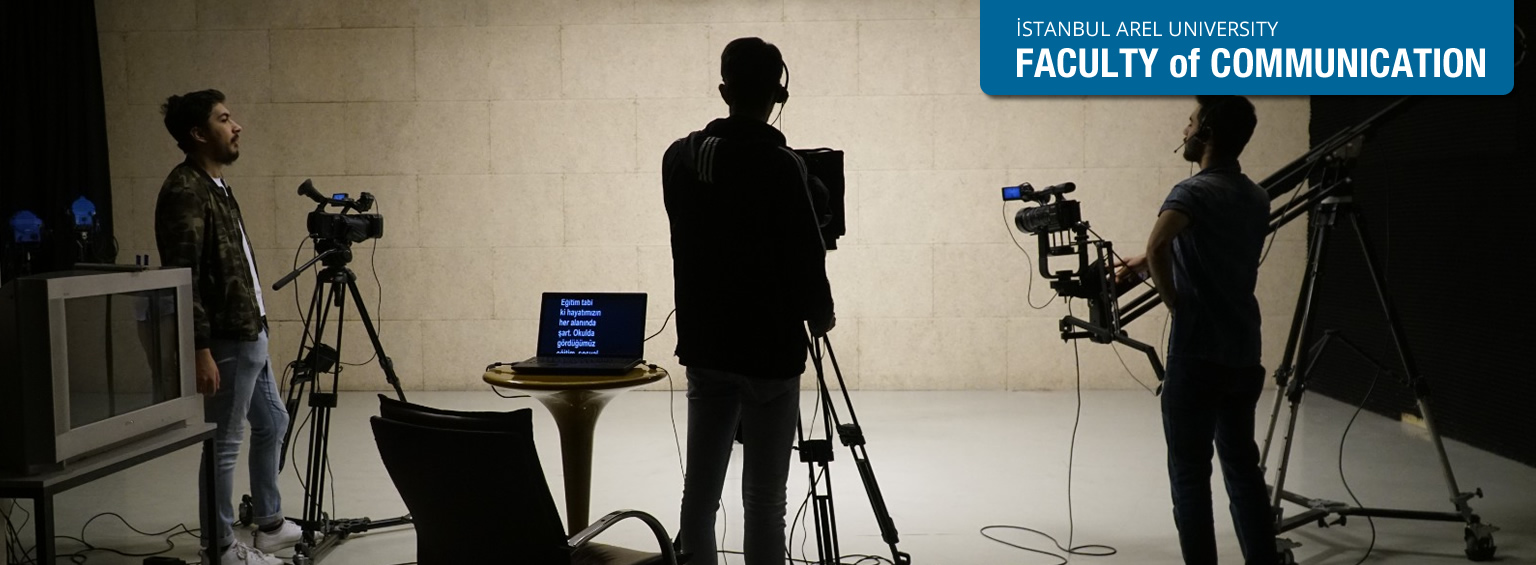Faculty of Communication
Program Learning Outcomes
New Media and CommunicationFACULTIES
COMMUNICATION

- Concepts are defined in accordance with cutting-edge communication theory and/or practice.
- Defines terms used in the media and communications professions.
- Learns the fundamentals of conducting scientific research in the area of communication and the media.
- Uses a critical and objective evaluation process when assessing media and communication goods.
- Determines which media and techniques for communication will be used in the process.
- Monitors and evaluates current global, regional, and local trends in the field of communication.
- Outlines commercial operations in the media and communications industries.
- Identifies the issues facing the media and communications industry and offers original answers.
- Students apply their knowledge of science to the manufacturing process.
- Use cutting-edge software and hardware in the media and communications industry.
- Students create initiatives that are appropriate for the target audience and offers institutions and people media and communication consulting.
- Alone or as a team, assumes responsibility for carrying out difficult or unpredictable tasks found in applications relevant to their area.
- Carries out independent advanced research in the sector.
- Within the context of a project, students oversee the development-related activities for the personnel under their control.
- In order to realize knowledge, ideas, practices, and technology that innovate a field, it requires risk-taking and accountability.
- Takes responsibility in transforming knowledge and skills into an idea/approach/technological product with high social/cultural/economic value by evaluating personal, professional and/or work-related risks and opportunities; develops entrepreneurial competence, individually or as a team member.
- Uses a critical approach to assess the advanced knowledge and abilities developed in the discipline.
- By identifying the learning objectives, develops and administers activities aimed at raising the performance of both themselves and those under their control.
- By communicating their ideas and suggestions for solutions to the problems vocally and in writing, their inform the pertinent individuals and institutions on the difficulties relating to their profession.
- Students present their ideas to professionals and non-experts alike, backing them with quantitative and qualitative evidence. They also propose solutions to challenges in their field.
- Follows industry trends and converses with coworkers in English, at least at the B1 General Level of the European Language Portfolio.
- Utilizes information and communication technology in accordance with industry standards, as outlined by the Advanced Level of the European Computer Usage License for computer usage.
- Plans and carries out programs and activities for the social environment.
- Behaves in accordance with social, scientific, cultural, and ethical standards İn the stages of gathering, interpreting, implementing, and making public the outcomes relevant to the field.
- Conducts operations in accordance with the knowledge it has gained in the areas of the universality of social rights, social justice, superior culture and the defense of cultural values, environmental protection, and occupational health and safety.



